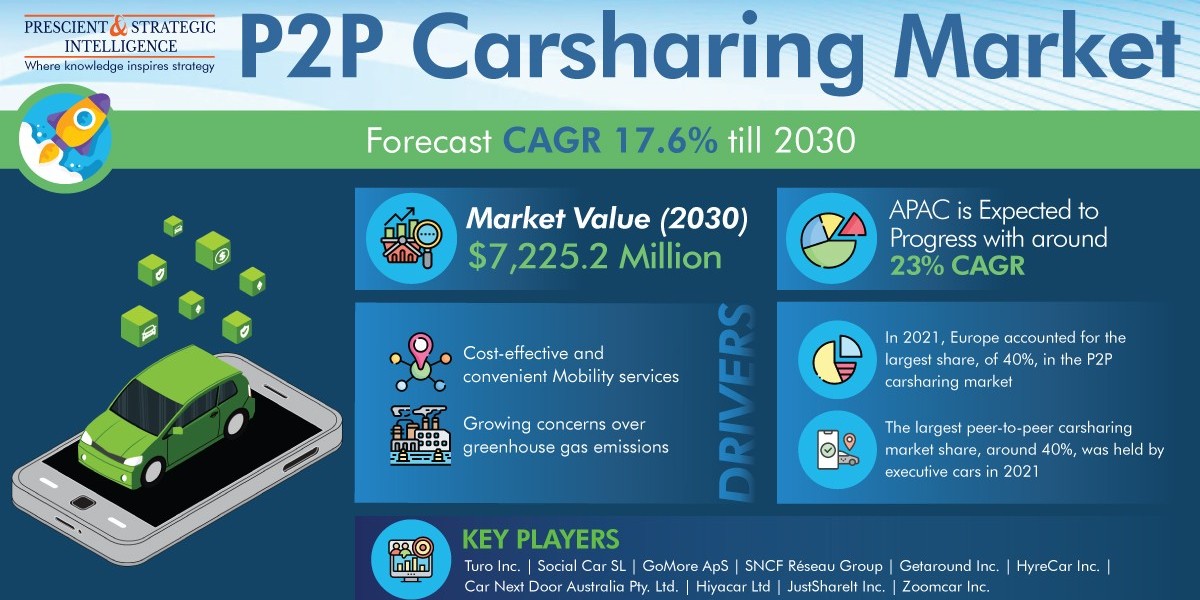The P2P carsharing market will propel at a 17.6% compound annual growth rate, to touch USD 7,225.2 million, by 2030.
The growth of this industry is because of the surging need for cost-efficient services of mobility, strict guidelines of the governments to limit environmental emissions, and the high price of automobile ownership.
This concept has also been increasingly becoming popular as a result of the increasing infiltration of mobile applications for vehicle booking. Carsharing is an important vertical in the sector of transportation because it provides various advantages to individuals and automakers.
The charge of automobile ownership is increasing because of various reasons, for instance, the mounting fuel and automobile costs, registration and licensing costs, and insurance premiums. P2P carsharing allows individuals to use a car by only paying for the ride. P2P has developed into a prospect to enhance the sustainability of the economy and offer various advantages, for instance, lessening carbon emissions, considerable returns on investment, and fuel savings.
Moreover, the mounting population in major cities all over the globe has resulted in a rising count of day-to-day commuters, as a result, making congestion on roads, particularly during peak times. Therefore, businesses are exploring other options for mobility to solve this issue.
In the past few years, the executive category, based on car type, accounted for the largest P2P carsharing market share, and it will remain the largest in the years to come. This can be mainly because of their lesser cost of rental compared to the value and comfort provided to users.
Moreover, because of the speedy economic expansion of some emerging economies, including China and India, the count of companies is surging and investors are highly investing in various startups. Therefore, these cars are increasingly being manufactured to provide greater services of transportation to employees and, as a result, toughens the global requirement growth for P2P service.
Europe led the industry in recent years, because of the increasing pollution and highly populated cities on the continent. The EU always focuses on the requirement for green technologies or other possibilities, to enable a drop in the environmental emissions. Additionally, the high purchase price of automobile ownership has also resulted in the surging requirement for these services in the continent.








